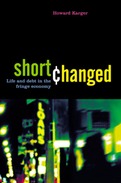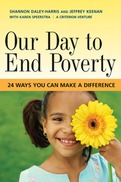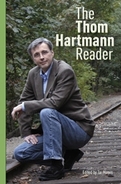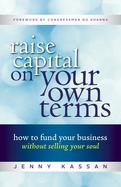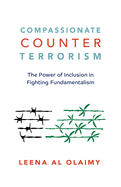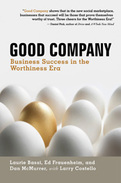2005
-
Chronicles how fringe economy businesses ruthlessly and systematically exploit the poor and the middle classes
-
Feature dozens of personal stories from individuals whose lives have been ruined by participating in this fringe economy
-
Includes hard-headed, practical recommendations for reforming fringe economy business practices
- Offers practical, easy steps anyone can take to help end extreme poverty
- Cleverly organized around the tasks we undertake in a typical day
- Helps you connect your daily experiences to those of people around the world
The first book to offer a comprehensive overview of Hartmann's thoughts-the breadth will surprise even longtime fans
Hartmann is perhaps best known for his fierce commitment to Jeffersonian democracy and his steadfast opposition to the corporatization of America. But in these pages you’ll also discover his Older and Younger Cultures hypothesis, which identifies the root cause of so many of our social and environmental ills. You’ll hear from Hartmann on how to keep our schools from treating children like assembly line products, why attention deficit disorder is not an affliction, what cloudy Germany can teach us about solar energy, and much more. Fascinating as these essays are, they’re ultimately meant to inspire you to action. As Hartmann says at the end of every radio program, “Get out there, get active! Tag, you’re it!”
- By the New York Times bestselling author and number one progressive radio talk show host
- The first book to offer a comprehensive overview of Hartmanns thoughtthe breadth will surprise even longtime fans
- Touches on an extraordinary variety of subjects: politics, history, psychology, ecology, spirituality, and more
Its hard to pigeonhole Thom Hartmann. He has a unique synthesis of qualities not often found in one person: a scholars love of history, a scientists zeal for facts, a visionarys seeking after truth, an explorers appetite for adventure and novelty. In addition to being the nations number one progressive radio host, hes been an ad man, a psychotherapist, a private detective, and a homeopath. His writings encompass politics, history, ecology, psychology, and spirituality, among other subjects.
Even Hartmanns millions of loyal listeners and readers will be amazed at the breadth of his thought as evidenced by The Thom Hartmann Reader. Editor Tai Moses has pulled together Hartmanns writings from a dozen books and other sources to present a comprehensive picture of where Hartmanns wide-ranging intellect has led him over the past thirty years.
Hartmann is perhaps best known as a political thinker, and essays throughout this book expressin his characteristic impassioned and lucid stylehis fierce commitment to Jeffersonian democracy and his virulent opposition to the corporatization of America. But youll also discover his Older and Younger Cultures hypothesis, which identifies the root cause of so many of our social and environmental ills and points the way to a solution. Youll hear from Hartmann on how to keep our schools from treating children like assembly line products, why attention deficit disorder is not an affliction, and what cloudy Germany can teach us about solar energy. Youll meet the remarkable Gottfried Mller, Hartmanns mentor and the founder of the humanitarian organization Salem International. Youll join Hartmann on fact-finding trips to Uganda, Russia, and four-thousand-year-old ruins in Peru.
As fascinating as these and other topics in The Thom Hartmann Reader are, Hartmanns deepest aspiration has always been that his audience do more than just listen or read, that they become active, awakened agents of change. These essays are meant to inspire and motivate, to spur you to take some kind of action. As Hartmann says at the end of every radio program, Get out there, get active! Tag, youre it!
You're an entrepreneur with a great idea. But your business needs money. So, do you max out your credit cards, borrow from friends and family, and do everything yourself? Or do you make a devil's bargain with some venture capitalist who'll demand a tenfold return and could easily take your business out from under you?
No and no! You don't have to bootstrap, and you don't have to sell out! Jenny Kassan says the landscape of investment capital is far larger and more diverse than most people realize. She illuminates the vast range of capital-raising strategies available to mission-driven entrepreneurs and provides a six-step process for finding and enlisting investors who are a match with your personal goals and aspirations. The plan you create will inspire you, excite you, and help you achieve your dreams!
Al Olaimy sets the stage by providing a quick, thoughtful grounding in the birth of Islam in a barbaric Game of Thrones–like seventh-century Arabia, the evolution of fundamentalist thought, and the political failures of the postcolonial period. She shows that terrorists are motivated by economic exclusion, lack of opportunity, social marginalization, and political discrimination. This is why using force to counter terrorism is ineffective—it exacerbates the symptoms without treating the cause. Moreover, data shows that military interventions led to the demise of only 12 percent of religious terrorist groups.
Combining compelling data with anecdotal evidence, Al Olaimy sheds light on unorthodox and counterintuitive strategies to address social woes that groups like ISIS exploit. For example, she describes how Indonesia, the world's most populous Muslim country, has decreased terrorism while paradoxically becoming more overtly religious. Or how Mechelen, the city with Belgium's largest Muslim population, adopted integration policies so effective that not one of its 20,000 Muslims left to join ISIS. Using religion, neuroscience, farming, and even love, this book offers many inspiring examples and—for once—an optimistic outlook on how we can not just fight but prevent terrorism.
2011


